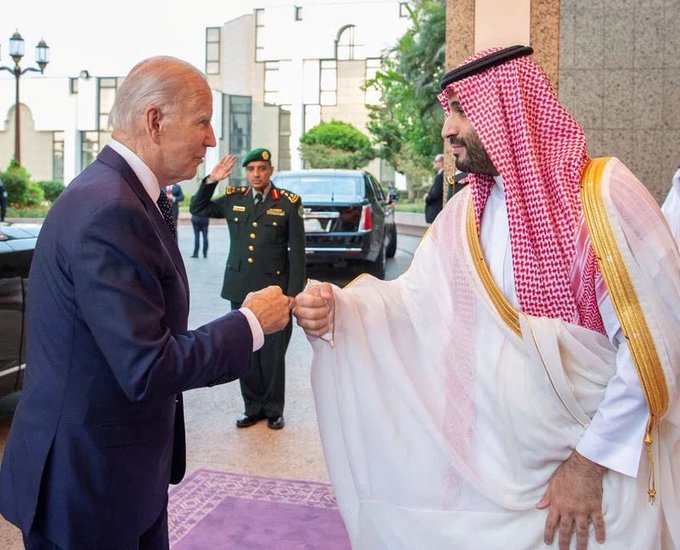Saudi Arabia has dramatically walked away from a proposed defense agreement with the United States, a move that signals deepening tensions over the stalled normalization of relations with Israel. This decision comes as the Gulf nation insists on stronger commitments to Palestinian statehood before it will consider recognizing Israel.
The defense pact was initially seen as a major step towards strengthening military cooperation between the U.S. and Saudi Arabia. In exchange, Riyadh had indicated that it would move toward establishing full diplomatic relations with Israel, a historic shift in the Middle East. However, with the situation on the ground in Gaza escalating, Saudi Arabia has now insisted on a more modest security agreement, rejecting a broader defense treaty with Washington.
Riyadh’s Changing Stance on Israel and Palestine
Earlier in 2024, Saudi Arabia appeared willing to compromise on its longstanding position regarding Palestinian statehood in exchange for a deal with Israel. Crown Prince Mohammed bin Salman had softened his stance, signaling that a public commitment from Israel to a two-state solution could be sufficient for Saudi Arabia to move forward with normalization.
But the mood in Saudi Arabia has shifted dramatically since then. The violent conflict in Gaza, which saw Israel’s military escalate operations in response to Hamas attacks, has fueled outrage across the region. Saudi citizens, alongside others in the Arab world, have voiced their anger, demanding that their government take a firm stance on Palestinian statehood.
As public protests against Israel’s actions grow louder, Crown Prince Mohammed bin Salman has reversed course. He has now made recognition of Israel conditional on concrete steps toward the creation of a Palestinian state, a demand that Israeli leaders are unlikely to meet under current conditions.
Israel’s Struggle to Move Forward with Normalization
Israeli Prime Minister Benjamin Netanyahu, who has long sought to secure normalization with Saudi Arabia, faces his own political challenges. The prospect of full recognition by the Saudis would be a historic victory for Netanyahu, potentially marking a new era of acceptance for Israel in the Arab world.
However, Netanyahu’s position has become increasingly precarious. The October 7 Hamas attacks, which led to widespread violence, have made it politically untenable for Netanyahu to make concessions on Palestinian statehood. Doing so would fracture his coalition, which has hardline members who oppose any agreement that could be seen as giving ground to the Palestinians.
Western diplomats have emphasized that Netanyahu’s domestic political landscape is a significant obstacle to progress. His government, which includes right-wing parties, has made any compromise on Palestinian statehood a highly controversial issue.
A Modest Pact in the Face of Deadlock
With the impasse over Israeli-Palestinian relations showing no signs of resolution, Saudi Arabia and the United States are now turning their attention to a more modest defense deal. While the grand vision of a broad security pact may be out of reach, both parties are hopeful that they can still secure a smaller agreement focused on military cooperation.
The U.S. is keen to maintain strong relations with Saudi Arabia, given its strategic importance in the region. However, the Biden administration faces its own constraints. The president is under pressure to address concerns over human rights and security in the Middle East, all while dealing with a rapidly changing geopolitical environment.
The possibility of reaching an agreement before President Biden leaves office in January 2025 remains a hope for both Riyadh and Washington, though it is far from certain. Both sides have expressed a willingness to move forward, but the political realities in Israel and Saudi Arabia make any breakthrough difficult.
The Road Ahead: A Complex Web of Diplomacy
Saudi Arabia’s rejection of a sweeping defense pact with the U.S. marks a significant diplomatic setback for Washington, which had hoped the deal could pave the way for broader peace in the Middle East. For Riyadh, however, the decision reflects the complexity of balancing regional alliances with the deep-rooted issues surrounding Palestine.
While the U.S. and Saudi Arabia continue to search for common ground, the fate of any defense deal hinges on the ability of both sides to navigate the minefield of Middle East politics. With Israel reluctant to make concessions and public anger in the Arab world at a boiling point, the path to normalization remains fraught with challenges.

